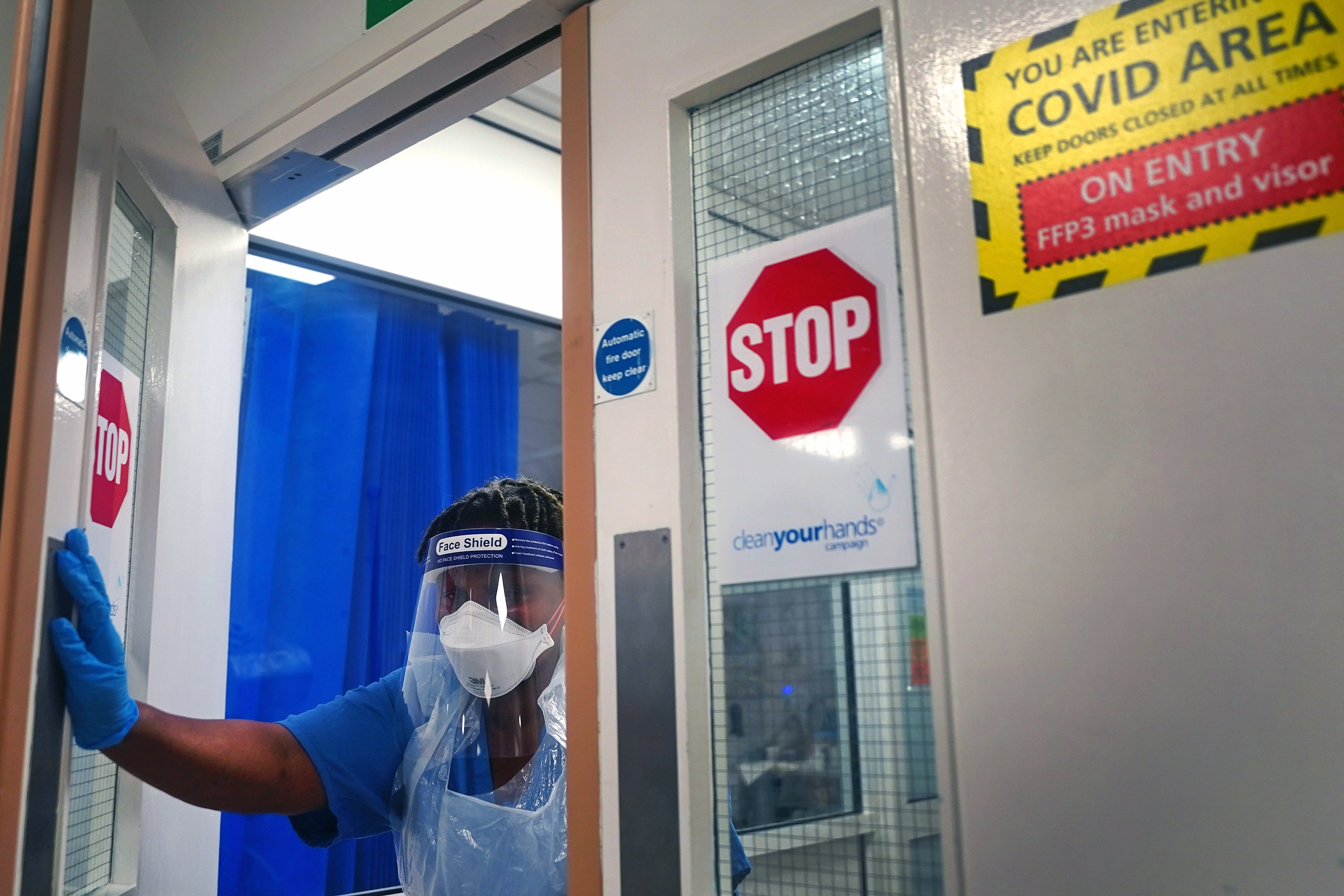Longest known Covid infection lasted 505 days, study finds
The previous longest known infection thought to have lasted 335 days.

Your support helps us to tell the story
From reproductive rights to climate change to Big Tech, The Independent is on the ground when the story is developing. Whether it's investigating the financials of Elon Musk's pro-Trump PAC or producing our latest documentary, 'The A Word', which shines a light on the American women fighting for reproductive rights, we know how important it is to parse out the facts from the messaging.
At such a critical moment in US history, we need reporters on the ground. Your donation allows us to keep sending journalists to speak to both sides of the story.
The Independent is trusted by Americans across the entire political spectrum. And unlike many other quality news outlets, we choose not to lock Americans out of our reporting and analysis with paywalls. We believe quality journalism should be available to everyone, paid for by those who can afford it.
Your support makes all the difference.A Covid-19 patient tested positive for 505 days before their death, making it the longest known coronavirus infection, UK researchers have said.
The previous longest known infection is thought to have lasted 335 days.
Most people who contract the virus are able to clear the infection naturally, but the patient in question had a severely weakened immune system and multiple comorbidities – other conditions.
They first started showing symptoms and tested positive in early 2020, and tested positive many times until dying in 2021.
The researchers, who studied the virus from nine Covid patients in London, also provide evidence that new Covid variants may arise in immunocompromised individuals.
Presenting their details at the European Congress of Clinical Microbiology & Infectious Diseases (ECCMID) in Lisbon, Portugal, they describe details of one of the first occult Covid infections – cases where the patient was thought to have cleared the virus with a negative test but is subsequently found to have had an ongoing infection.
The team, from King’s College London and Guy’s and St Thomas’ NHS Foundation Trust, were interested in how the virus changes over time in immunocompromised individuals.
This provides evidence that mutations found in variants of concern do arise in immunocompromised patients and so supports the idea that new variants of the viruses may develop in immunocompromised individuals
First author Dr Luke Blagdon Snell, of Guy’s and St Thomas’ NHS Foundation Trust, said: “New variants of SARS-CoV-2, the virus that causes Covid-19, have emerged throughout the pandemic.
“Some of these variants transmit more easily between people, cause more severe disease, or make the vaccines less effective.
“One theory is that these viral variants evolve in individuals whose immune systems are weakened from illness or medical treatments like chemotherapy, who can have persistent infection with SARS-CoV-2.
“We wanted to investigate which mutations arise, and if variants evolve, in these people with persistent infection.”
Nine immunocompromised patients who tested positive for the virus for at least eight weeks were included in the study.
Infections lasted for 73 days, on average, but two patients had persistent infections for more than a year.
The patients, who were studied between March 2020 and December 2021, had weakened immune systems due to organ transplantation, HIV, cancer, or medical therapies for other illnesses.
Analysis showed that five of the nine patients developed at least one mutation seen in variants of concern.
Some of the people developed multiple mutations associated with variants of concern, such as Alpha, Delta and Omicron.
The researchers found that the virus from one patient contained 10 mutations that would arise separately in variants of concern, such as Alpha, Gamma and Omicron.
Dr Snell and colleagues said: “This provides evidence that mutations found in variants of concern do arise in immunocompromised patients and so supports the idea that new variants of the viruses may develop in immunocompromised individuals.
“It is important to note, however, that none of the individuals in our work developed new variants that became widespread variants of concern.
“Additionally, whilst this work shows variants could arise in immunocompromised individuals, whether the previous variants of concern like Alpha, Delta and Omicron arose in this manner remains unknown.”
Five of the nine patients survived, and one still has an infection. At their last follow-up in early 2022, that patient had been infected for 412 days.
The person has been treated with monoclonal antibodies, but if they still test positive at their next appointment, researchers suggest they will likely pass the longest known infection of 505 days as described in the new study.